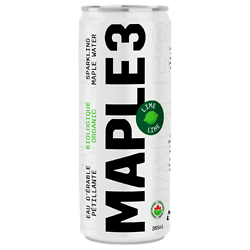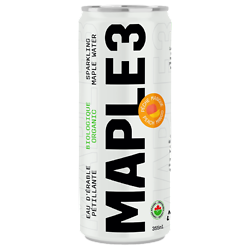recycled cardboards
Benefits of maple water
Do you know maple water? Delicious and above all with great potential, this vegetable and natural water has the largest variety of recognized bioactive compounds. You can consume it as pure maple water or use it as an ingredient in your culinary preparations.
Properties of maple water
Maple sap is composed of active antioxidants such as polyphenols comparable to those found in fruits and vegetables commonly found in our diet (e.g. broccoli), as well as trace elements and vitamins.
Maple sap contains an average of 95% to 97.5% water and 2.5% solids as follows :

Benefits of maple water
According to a study by the University of Rhode Island, maple sap contains 46 antioxidant components known for their anti-cancer, anti-bacterial and anti-diabetic properties and therefore actively contributing to the daily protection against the effects of aging, cardiovascular diseases and cancer. Among other things, Quebec maple sap has the potential of a superfood, thanks to certain molecules with anti-inflammatory and anti-cancer properties.
Its low caloric intake fits well into a healthy and balanced diet.
Uses of maple water
Maple water is a good substitute for water when cooking rice, millet or other grains. It enhances the flavor of your favorite herbal teas or coffee and gives a fine taste in the design of your sauces, cooking of meats, creams or pastries. You can also enjoy it as is, as a nutritional or therapeutic drink or as a fruit-flavored sparkling water.
History of maple water
In accordance with the rules of the Federation of Quebec Maple Syrup Producers, Seva maple sap respects "BIO" standards through a rigorous selection of the maple groves from which it comes.
Maple sap was used long before the arrival of the first settlers. The natives tapped the maple tree to collect the sap, which they used for medicinal purposes. At the time of harvest, the sap contains up to 97.5% water. It is loaded with minerals and organic molecules.


